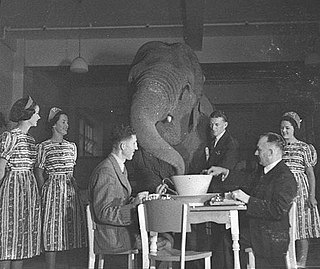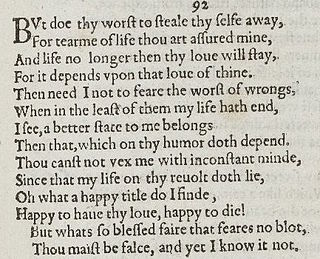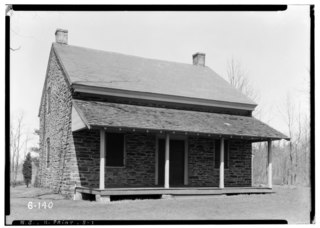The distinction between literal and figurative language exists in all natural languages; the phenomenon is studied within certain areas of language analysis, in particular stylistics, rhetoric, and semantics.

The expression "the elephant in the room" is a metaphorical idiom in English for an important or enormous topic, question, or controversial issue that is obvious or that everyone knows about but no one mentions or wants to discuss because it makes at least some of them uncomfortable and is personally, socially, or politically embarrassing, controversial, inflammatory, or dangerous. The metaphorical elephant represents an obvious problem or difficult situation that people do not want to talk about.

The word "orange" is a noun and an adjective in the English language. In both cases, it refers primarily to the orange fruit and the color orange, but has many other derivative meanings.

A head is the part of an organism which usually includes the ears, brain, forehead, cheeks, chin, eyes, nose, and mouth, each of which aid in various sensory functions such as sight, hearing, smell, and taste. Some very simple animals may not have a head, but many bilaterally symmetric forms do, regardless of size.

Marietta Holley, was an American humorist who used satire to comment on U.S. society and politics. Holley enjoyed a prolific writing career and was a bestselling author in the late 19th century, though she was largely forgotten by the time of her death. Her writing was frequently compared to that of Mark Twain and Edgar Nye. Along with Frances Miriam Whitcher and Ann S. Stephens, Holley is regarded as one of America's most significant early female humorists. Her work appealed to all classes of society. Her readers were scattered over the entire world, and included men and women of every station and grade. Her books were widely read in Europe.
The story and metaphor of The Dog in the Manger derives from an old Greek fable which has been transmitted in several different versions. Interpreted variously over the centuries, the metaphor is now used to speak of one who spitefully prevents others from having something for which one has no use. Although the story was ascribed to Aesop's Fables in the 15th century, there is no ancient source that does so.

Treeing is a method of hunting where dogs are used to force animals that naturally climb up into trees, where they can be assessed or shot by hunters. The idiomatic phrase "Barking up the wrong tree" comes from this practice.
A phraseme, also called a set phrase, fixed expression, multiword expression, or idiom, is a multi-word or multi-morphemic utterance whose components include at least one that is selectionally constrained or restricted by linguistic convention such that it is not freely chosen. In the most extreme cases, there are expressions such as X kicks the bucket ≈ ‘person X dies of natural causes, the speaker being flippant about X’s demise’ where the unit is selected as a whole to express a meaning that bears little or no relation to the meanings of its parts. All of the words in this expression are chosen restrictedly, as part of a chunk. At the other extreme, there are collocations such as stark naked, hearty laugh, or infinite patience where one of the words is chosen freely based on the meaning the speaker wishes to express while the choice of the other (intensifying) word is constrained by the conventions of the English language. Both kinds of expression are phrasemes, and can be contrasted with ’’free phrases’’, expressions where all of the members are chosen freely, based exclusively on their meaning and the message that the speaker wishes to communicate.

Sonnet 92 is one of 154 sonnets written by the English playwright and poet William Shakespeare. It is a member of the Fair Youth sequence, in which the poet expresses his love towards a young man.

An idiom is a common word or phrase with a figurative, non-literal meaning that is understood culturally and differs from what its composite words' denotations would suggest; i.e. the words together have a meaning that is different from the dictionary definitions of the individual words. By another definition, an idiom is a speech form or an expression of a given language that is peculiar to itself grammatically or cannot be understood from the individual meanings of its elements. For example, an English speaker would understand the phrase "kick the bucket" to mean "to die" – and also to actually kick a bucket. Furthermore, they would understand when each meaning is being used in context.

Stony Brook Meeting House and Cemetery are historic Quaker sites located at the Stony Brook Settlement at the intersection of Princeton Pike/Mercer Road and Quaker Road in Princeton, New Jersey, United States. The first Europeans to settle in the Princeton area were six Quaker families who built their homes near the Stony Brook around 1696. In 1709 Benjamin Clark deeded nine and three-fifths acres in trust to Richard Stockton and others to establish a Friends meeting house and burial ground.

"Root hog or die" is a common American catch-phrase dating at least to the early 1800s. Coming from the early colonial practice of turning pigs loose in the woods to fend for themselves, the term is an idiomatic expression for self-reliance.
Damning with faint praise is an English idiom, expressing oxymoronically that half-hearted or insincere praise may act as oblique criticism or condemnation. In simpler terms, praise is given, but only given as high as mediocrity, which may be interpreted as passive-aggressive.

The Bottle Conjuror was the stage name given to a hoax theatrical performer, advertised to appear at the Haymarket Theatre in England, on 16 January 1749. While on stage, the acrobat was to have placed his body inside an empty wine bottle, in full view of the audience. When he failed to appear for the widely-billed performance, the audience rioted and gutted the theatre.
The phrase out of the frying pan into the fire is used to describe the situation of moving or getting from a bad or difficult situation to a worse one, often as the result of trying to escape from the bad or difficult one. It was the subject of a 15th-century fable that eventually entered the Aesopic canon.
Here's your mule or Where's my mule? was a Confederate catch phrase during the Civil War, often noted in Civil War histories. It resulted in several Civil War songs, including "Here's Your Mule", "How Are You? John Morgan", and "Turchin's Got Your Mule". It is also credited with contributing to General Bragg's failure to rally his troops at Missionary Ridge.

The expression cart before the horse is an idiom or proverb used to suggest something is done contrary to the natural or normally effective sequence of events. A cart is a vehicle that is ordinarily pulled by a horse, so to put the cart before the horse is an analogy for doing things in the wrong order. The figure of speech means doing things the wrong way round or with the wrong emphasis or confusing cause and effect.

Coon hunting is the practice of hunting raccoons, most often for their meat and fur. It is almost always done with specially bred dogs called coonhounds, of which there are six breeds, and is most commonly associated with rural life in the Southern United States. Coon hunting is also popular in the rural Midwest. Most coon hunts take place at night, with the dogs being turned loose, trailing and putting the raccoon up a tree without human assistance. Once the raccoon is in the tree, with the dog at the base, it is referred to as "treed", with "treeing" being the active verb form.

Forestdale Cemetery is a public secular cemetery located in Holyoke, Massachusetts. The cemetery was officially organized on November 1, 1860, after a town meeting in October of that year designated a sum of $1,500 for the purchase of land; contributions for this land came from the Holyoke Water Power Company as well as local mills, with the acquisitions presided over by Jones S. Davis, engineer of Lyman Mills. The cemetery acquisitions were completed and dedicated on June 22, 1862 with speeches by Amherst professor J.G. Voss and one of Holyoke's founding figures, George C. Ewing. The cemetery, built during a time of great interest in landscape architecture, contains a deliberately chosen layout of ornamental trees and shrubs.












